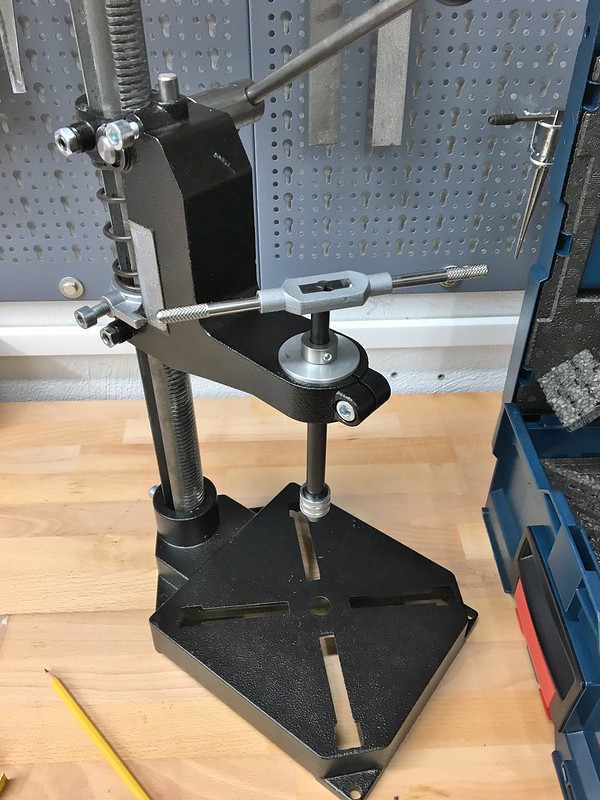+1 to using a pillar drill, V notch in wood, tap guide, cutting fluid, reversing tap every turn (actually I usually do it every half turn; turn it as far as I can on one hold, reverse till I feel the waste metal being cut off, then change hand position and repeat).
That little indent that t8hants mentioned is accurately centred. As you say, you can use a spring loaded centre in that with a drill press (you can get them here as wood lathe drive centres, just ignore the jagged bits). But you can do it without a posh centre, a plain dead centre or even a rod filed down to a point in the drill will do. Clamp the work down with the hole centred (best way is to do this right after drilling with it clamped). Put the tap in the drill and start the thread as described above. When you need the extra force of the tap wrench, loosen the chuck and replace it with the centre and put the wrench on the tap. Push the tap down with the quill, and lock it if the quill locks. Then do a turn, backing off then turning till it engages. Push the quill down a bit then repeat.
Admittedly this is easier if you have three hands, but it is only a bit slow if you use the centre to realign the tap after every turn, and for a few threads a year this is worthwhile.
No-one has mentioned progressive taps. These come in sets of three; the first two are both tapered and have a smaller diameter than the final size. I find these really useful for something very tough, like stainless steel. Unfortunately you can't always tell from an advert if they are progressive!
Keith





